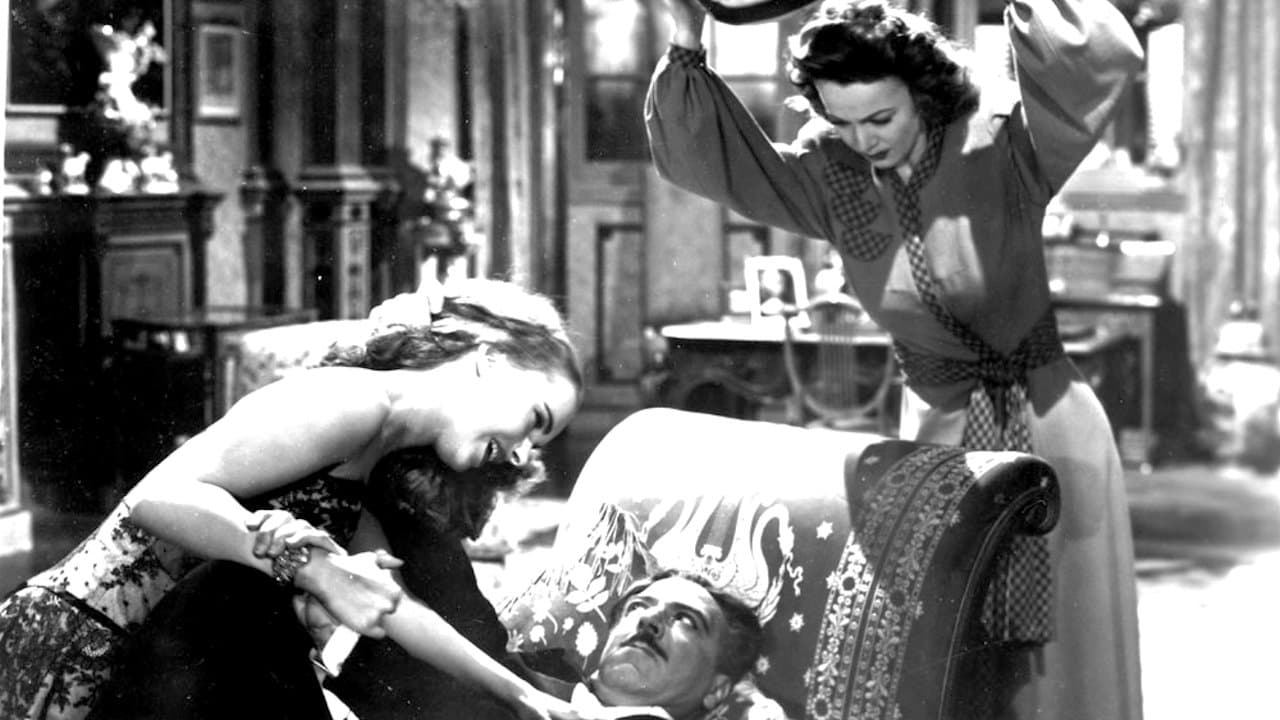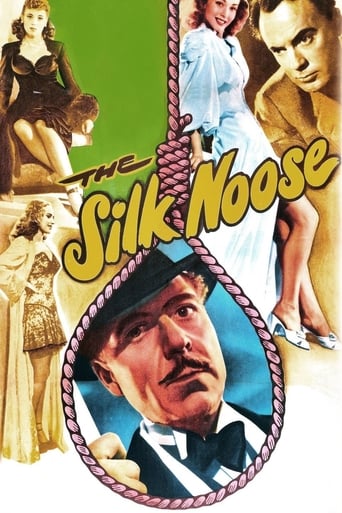

I rated this film with 6/10 mainly because the final punch-up by the boxers with the mobster gang was inconsistent, being almost comic slapstick with what had gone before involving which involved killings.As is commonly known Carole Landis had been a girlfriend of Rex Harrison and possibly through blighted affection committed suicide the same year as this film aged 29.Nigel Patrick plays an immoral cockney spiv not so ruthless as his partner an Italian gangster played by Joseph Calleia who is prone to lapse into "Don Giovanni" by Mozart occasionally.Stanley Holloway as the detective plays his part without any of the humour found in many other of his film portrayals.Derek Farr gives an unremarkable workman-like performance as the fiancé of Carole Landis.I was surprised to find this full length 1948 film on Youtube probably because it is in the public domain and therefore out of copyright.
... View MoreIn her next to last film Carole Landis goes across the pond with Joseph Calleia to star in this British production The Silk Noose. Landis plays a Lois Lane type reporter who is doing an expose of the post war English black market. The United Kingdom may have won the war, but the country was still without a lot of basic goods and rationing was still strict by the new Labour government.Try as I might I could not wrap myself around the concept of an Italian running London's black market, especially with regard to the recent war with Italy. Still Calleia as always is one smooth operator who unfortunately has a temper with regard to bad publicity. Which is what Landis plans to give him.Her ally is London cop Derek Farr who was a former commando in the late war. In a rather extralegal maneuver he gets the participation of some of London's boxing clubs as his raiding party. That's something that sure wouldn't fly on this side of the pond. Nigel Patrick is on hand as Calleia's right hand man and Stanley Holloway is a somewhat compromised police inspector. The treatment here is most uneven and what should be atmospheric is somewhat dull.
... View MoreNote: this is a review for the full-length UK version of this film entitled NOOSE. It is always a pleasure to see a film noir that is not only entertaining, artistically satisfying and a little off-beat, but one that is little heard of. NOOSE, a British film from 1948, has many of the visual and plot elements of the American crime dramas made in the forties, and this one even features, unexpectedly, two American stars, Carole Landis and Joseph Calleia. Landis is a fashion reporter who, after getting a story from a girl who is later murdered, wants to get the goods on the man responsible for her death, a notorious and powerful black marketeer, even when she learns that it will entail personal danger to her. She is supported by her newly demobbed fiancé, who enlists a gang of toughs from the local gym to try to bring down the racketeer's empire. Quite a ride from here. --- The story was based on a play by Richard Llewellyn (noted for HOW GREEN WAS MY VALLEY), but it betrays little of its non-cinematic origins. Director Edmond Greville (a French-English director who began his career working with Abel Gance and ended it with the sleaze classic BEAT GIRL) lends the film considerable artistic flare -- the staging and camera angles will often surprise you; so much so that you sometimes believe you are watching an auteur film. Music is by the great Charles Williams (Dream of Olwen, Theme from the APARTMENT) and adds to the film. The cast is a standout, even though it occasionally seems to work to cross purposes. Carole Landis, who made her last two films in England, was not only an actress, but a singer, USO trouper, and baseball fan (her name came from Commissioner Kennesaw Mountain Landis!). Her career was lamentable spotty and her personal life a disaster, but she was a delight and it is a pity that shortly after this film she supposedly committed suicide (or, as some believe, was done in or something by her married boyfriend Rex Harrison.) Here she is vivacious and gives a performance well beyond that of the usual wise-cracking girl reporter. Derek Farr, always competent, seems bland by comparison and their pairing seems odd -- but the War did produce some odd couples. Joseph Calleia, originally Maltese, was a fixture in Hollywood during the forties and early fifties playing villains in gangster pictures and Westerns. As the kingpin black marketeer of foreign extraction he is simply superb, a performance Edward G. could not have bettered. Rivaling him for film time and stealing all his scenes, though, is Nigel Patrick as the flamboyant Cockney spiv who works for him. Stanley Holloway, known for comedic parts (LAVENDER HILL MOB, MY FAIR LADY) has an unusual dramatic turn as a policeman. --- This film is intriguing and eminently worth seeing, probably more than once, although, on the negative side, it is marred by an unevenness in tone, inconsistent pacing, and editing that disrupts the smooth telling of the story. -- also a few loose ends, such as what was the significance of Carole's character constantly taking her shoes off? Nevertheless, highly recommended for film noir fans!
... View MoreTangy post-War British 'Spiv' movie (a cycle of films with roots in 30s American Gangster movies, featuring characters profiting from wartime rationing in a similar fashion to 30s bootleggers, but not so clearly glamorised as their Stateside equivalents). Directed by Edmond T. Greville (BEAT GIRL aka WILD FOR KICKS), and adapted from a stage play, this features Carole Landis (in one of her final roles) as nosy reporter Linda Medbury who, together with her ex-commando boyfriend Jumbo Hoyle (played by Derek Farr), gets on the trail of a gang of post-war black marketeers headed by Soho nightclub owner Sugiani, played by Joseph Calleia (whose role was based on a real-life Post-war London criminal). This gets them mixed up with London 'Spiv' Bar Gorman, played by Nigel Patrick, whose slangy, comic performance almost overshadows the surrounding film. Imaginatively shot, speedily paced, and ripe with post-War vernacular and the requisite criminal dust-ups (primarily involving the good guys' recruited gang of boxers, market porters, and cab drivers versus the low-life criminals), this is an entertaining slice of British crime and deserves to be better known, as it's worthy of a place alongside such noted post-War British crime movies as BRIGHTON ROCK and NIGHT AND THE CITY. Check it out, if you get the chance.
... View More